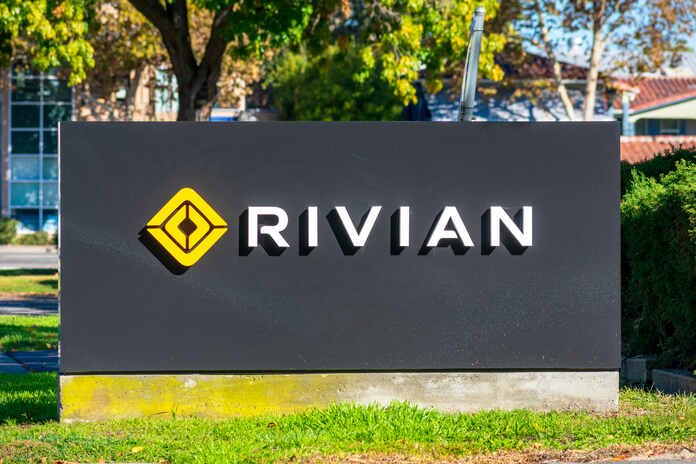Rivian Stock (NASDAQ:RIVN)
American electric vehicle manufacturer Rivian (NASDAQ:RIVN) is based in Irvine, California. Amazon (NASDAQ:AMZN) held 20% of the company prior to its IPO release. The company has so far made available to the general public the R1T and R1S versions. The Price of the R1T electric truck is approximately $70,000, while that of the R1S electric SUV is approximately $74,000. The company also owns the EDV700, which is a van that has been exclusively used by Amazon since 2021 for premier shipments. In 2019, Amazon declared that they have ordered 100,000 EDVs from Rivian. Although there is no official confirmation, we might infer that Rivian’s best-selling vehicle, the R1T, is still on the market. The R1T is ranked as the top electric truck on MotorTrend.
Nevertheless, Rivian might find the rivalry too challenging to handle now that Tesla (NASDAQ:TSLA) has entered the electric truck market. The situation for Rivian is ever-changing, so I must retain my neutrality.
Accounting & Growth
Rivian reported $536.00M in revenue in the third quarter, falling short of analysts’ expectations of $554.06M. In addition, its earnings per share, which were $1.57, as opposed to the $1.83 experts, had predicted, exceeded forecasts by 14%.
Rivian’s normalized income actually dropped from -$1,712M to -$1,724M when compared to quarter 2 in terms of money. Their cost of revenue climbed by 36% even though their revenue rose dramatically by 47%.
We recorded a lower cost or net realizable value (“LCNRV”) charge and losses on firm purchase commitments as of September 30, 2022, which together reduced gross profit by $696 million for the three months ended September 30, 2022. We anticipate that these factors will continue to have a detrimental effect on operating performance in the near future.
Until they increase production to cut labor and overhead costs, Rivian is anticipated to keep posting negative profitability. Nonetheless, I believe that because Amazon is helping them, investors shouldn’t worry too much about their finances or a lack of supply. In my opinion, the alliance will enable the corporation to weather a protracted period of poor financial performance.
The company’s expansion, though, appears optimistic.
In the third quarter of the calendar year, which ends on September 30, 2022, Rivian’s production rose 67% QoQ, which is excellent when compared to its rivals who struggled with supply chain challenges. The business only grew production by 36% in quarter 4 (which ends on December 31, 2022). Rivian also seems to be concentrating on building up manufacturing rather than deliveries. The R1 reservation backlog, just in the US and Canada, was over 114,000 units as of November 7, 2022, according to Rivian.
When it comes to the future FQ4, the consensus EPS projection is -$1.96 (25% less than the reported Q3) and the consensus revenue forecast is $734.47M (37% more than the reported Q3). They should exceed profitability by roughly 7% and equal revenue estimates. Rivian’s deliveries increased by 22% over the previous quarter. Notwithstanding the fact that the calendar quarter includes both FQ3 and 4, it can still give a reasonable indication of revenue growth. An estimate of a 37% rise in income is reasonable given that the number of deliveries is growing exponentially. The cost per unit should go down with the recent ramp-up, even though manufacturing and delivery did increase dramatically. I am not aware of any big changes in spending in the most recent quarter, and production costs shouldn’t increase too significantly. When comparing Q3’s EPS to Q2’s, I think Rivian is gradually moving toward profitability.
I still believe that the company is not growing quickly enough. The EV market is continually being entered by powerful established businesses. Years must pass before Rivian can even finish their backlog, let alone take the market, with a production of little over 10,000 vehicles each quarter and growth of only over 50% QoQ. Obviously, the corporation reduced expenses while underachieving analysts’ sales forecasts.
I adore how Rivian was able to carve out a niche for itself in desirable sub-segments like electric trucks and vans. Their most well-liked model is still the R1T, which has found a market with rising demand and little direct competition.
The Ford (NYSE:F) F-150 Lightning is now the biggest rival to the R1T. Rivian shipped roughly 25,000 R1T in 2022 versus 13,258 F-150 lightning. Ford’s model, it should be noted, wasn’t offered for the full second quarter. In terms of specifications, the two trucks are relatively comparable, with the R1T costing around $7,000 more but offering superior towing and off-road capabilities.
A skilled player with a lot of cash on hand, however, starts to assert its supremacy at this point. Ford anticipates producing 150,000 units during the fiscal year 2023, compared to Rivian’s estimates of 40,000 to an optimistic 50,000 units. Both businesses have hundreds of thousands of eager clients, but only one can keep up with demand.
My opinion is that Tesla, not Ford, is Rivian’s main rival. With its reasonable cost and features, Rivian won’t have any trouble meeting demand. Because of improved production, Ford should expand more quickly than Rivian, but both companies should still see revenue growth that pleases investors.
Tesla can help with this. They first stated that production would begin in 2021 when they unveiled they’re daring to revamp the truck on stage back in 2019. Naturally, this date was postponed numerous times. The most recent estimate is that the car will begin manufacturing in mid-2023, with sales most likely taking place in 2024.
Elon Musk will undoubtedly miss deadlines, but he will also almost certainly deliver and may even completely disrupt an industry if there is one thing I know about him and his businesses. Furthermore, if specifications fulfill expectations, Rivian purchasers who paid a $1000 deposit could request a refund when the cyber truck starts to appear on the road.
It is likely that Tesla will announce and give updates on the Cybertruck on March 1 during its investor day. I will personally purchase the calls, but that is a different story.
I believe that Tesla will quickly introduce genuine competition, which is why Rivian has succeeded so successfully with its truck concept up to this point. Moreover, vehicles are often in lower demand globally, so I doubt Rivian will soon grow there.
Powered Van
Overwhelmingly favorable feedback from the drivers helped Amazon, a 20% shareholder, launch deliveries with the Rivian truck last Christmas. Invisibly, Rivian’s electric van might be the way of the future. Given that package transportation firms like FedEx and United Parcel Service are beginning to implement ESG-friendly programs, I predict that the electric van will have unexpectedly high demand.
The S-1 agreement looks to be exclusive, but there is some wiggle room as seen by the fact that Rivian is selling to other fleet customers. Rivian may find a comfortable position receiving orders from businesses if the exclusivity arrangement is not as exclusive as investors initially believed. To meet Amazon’s order of 100,000 units before that, Rivian must significantly increase van manufacturing.
Conclusion
Before I go any further, I must caution everyone to take any news about Tesla with a grain of salt. Similar to what happened with the Model 3, there is a good risk that Tesla won’t achieve their expectations for pricing, and it’s also possible that its truck manufacturing will be further delayed once more. All Rivian investors should keep an eye on March 1.
On the plus side, Rivian has discovered a powerhouse in Amazon that backs its initiatives. Rivian has experienced significant growth over the last few quarters and has been able to accelerate production, even though it hasn’t even utilized all of its plants’ capabilities. The business is equipped with everything it needs to be incredibly prosperous. Yet, I’m waiting for evidence that they can successfully traverse the competitive EV market as a young firm, and for various reasons, I have my reservations. Because of this, I will advise you to hold Rivian stock.
Featured Image: Megapixl @ Michaelvi

















